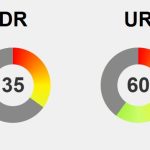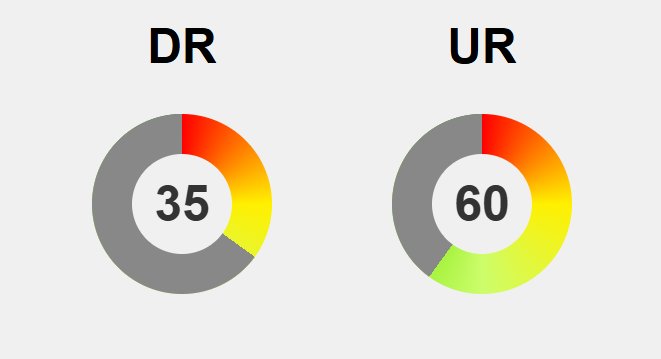Can celestial patterns truly influence our personalities and life paths? This exploration of astrology reveals a rich history rooted in ancient civilizations like Babylon, Greece, China, and India, where the stars were seen as mirrors of human destiny. While supporters claim that planetary positions create a cosmic blueprint guiding our traits and choices, scientific evidence remains elusive. Rigorous studies show astrology’s predictions lack reproducibility and are often too vague to be validated, relying on cognitive biases and the Forer effect instead. Yet, millions turn to horoscopes and birth charts for self-understanding, relationship insights, and timing decisions, finding comfort in the symbolic language of the stars. But should we accept astrology’s cultural significance without scientific backing? This tension invites a deeper reflection: is astrology a meaningful tool for personal growth or a persistent illusion? Navigating between belief and skepticism, this compelling overview challenges us to consider how much influence the universe truly exerts over our lives.
Unveiling the Ancient Roots and Main Claims of Astrology
Astrology is an ancient practice that connects the movements of celestial bodies to human life. Its origins stretch back thousands of years, appearing in early civilizations like Babylon, Greece, China, and India. These cultures observed the night sky with care, noticing patterns and correlations between what they saw above and events on earth. Over time, they developed systems to interpret these celestial patterns, believing that the cosmos held clues about human nature and destiny.
The core idea behind astrology is that the positions of planets and stars at the moment of your birth influence your personality and your life path. This isn’t just about your zodiac sign—though that’s the most familiar aspect—but involves a complex system that includes the sun, moon, planets, and the twelve zodiac houses. Together, these elements create a birth chart, which astrologers see as a snapshot of the sky at your exact time and place of birth.
Supporters of astrology argue that this birth chart acts like a cosmic blueprint, revealing insights into who you are and what you might encounter throughout life. They say that planetary positions leave an energetic imprint that shapes traits, challenges, and potential. For example, Mercury’s placement is believed to influence communication skills, while Venus affects love and relationships. These celestial influences are thought to be strongest at birth, determining core aspects of your character and future.
Throughout history, different cultures have woven astrology into their worldview. The Babylonians created some of the earliest zodiac signs around 2000 BCE, dividing the sky into constellations and assigning meanings to their positions. The Greeks integrated astrology into philosophy, blending it with their understanding of the universe and human nature. Meanwhile, Chinese and Indian traditions developed their own sophisticated systems, like the Chinese zodiac and Vedic astrology, which continue to influence millions today.
Despite its long history, astrology’s main claim remains that celestial patterns—such as planetary alignments and lunar phases—can reveal deep truths about personality and destiny. Many find comfort in the idea that the universe reflects their inner selves, seeing their birth chart as a map that guides self-awareness and understanding. Whether predicting major life events or uncovering hidden traits, astrology suggests the universe’s grand design is written in the stars and reflected in individual stories.
Deciphering the Cosmic Blueprint: How Stars and Planets Shape Us
Astrology suggests that stars and planets are more than distant objects shining in the night sky—they are powerful forces that influence our lives in subtle yet meaningful ways. Believers hold that each celestial body emits specific energies, shaping our thoughts, feelings, and behaviors. For example, Mercury’s position is thought to impact how clearly and effectively we communicate, while Venus is associated with love and emotional connection. These influences are believed to be strongest at the moment of birth, leaving a cosmic imprint that guides our personality and life choices.
This idea rests on the view that the universe is interconnected, with celestial forces forming a blueprint of who we are and what we might become. The positions of planets and stars at your birth are seen as an energetic signature—a unique cosmic fingerprint—that influences your natural tendencies and potential life path. When astrologers analyze a birth chart, they interpret these planetary placements as indicators of core traits, strengths, and challenges. For instance, a prominent Mars might suggest assertiveness or drive, whereas a strong Moon could point to emotional sensitivity.
Many proponents argue that planetary influences extend beyond personality traits—they can shape major life decisions and experiences. They believe planetary alignments predefine tendencies, influencing when we’re most likely to pursue opportunities or face obstacles. This perspective treats celestial patterns as a cosmic code, which, if decoded, offers insights into human nature and the unfolding of our lives. A birth chart becomes a personalized map, highlighting both strengths and potential pitfalls.
Central to this idea are the birth charts themselves—detailed diagrams mapping the positions of the sun, moon, planets, and zodiac signs at the exact moment and place of birth. Interpreting these involves analyzing where each planet falls within specific signs and houses, each representing different areas of life. This process aims to uncover hidden aspects of our personality and forecast possible future trends. Despite its complexity, the goal remains to foster self-understanding and navigate life with greater awareness.
Throughout history, various cultures have built elaborate systems around planetary influences. The Babylonians, Greeks, Chinese, and Indians all developed their own interpretations and traditions, integrating celestial movements into their understanding of human destiny. While the scientific community views these claims skeptically, the enduring appeal of celestial influences lies in their ability to connect us to a larger universe—one that reflects our inner worlds and guides our journeys.
Ultimately, astrology offers a poetic language through which many interpret life’s mysteries. It provides a symbolic framework for understanding ourselves and our experiences, emphasizing the interconnectedness of all things. Whether seen as a spiritual guide or a cultural tradition, the idea that stars and planets influence our lives continues to resonate, inviting curiosity and reflection on the cosmic forces at play.
Science Meets Skepticism: The Evidence Against Astrology’s Claims
Scientific research generally treats astrology with a healthy dose of skepticism. Despite its long history and cultural significance, rigorous testing under controlled conditions consistently shows that astrology’s predictions don’t perform better than chance. Numerous studies have attempted to verify whether birth charts or horoscopes can accurately forecast personality traits or life events, but the results rarely support these claims. Instead, they reveal that astrology’s predictions tend to be vague and broad enough to fit almost anyone—a phenomenon known as the Forer effect—making it difficult to distinguish genuine insight from generalities.
Supporters often share personal stories as evidence, claiming that horoscopes or birth charts have predicted their moods or major life changes. While these anecdotes can seem convincing, they are inherently subjective and prone to confirmation bias—people tend to remember accurate hits and overlook misses. This selective memory creates a skewed perception of astrology’s accuracy that doesn’t hold up when tested scientifically. Without reproducible, empirical evidence, these stories remain personal beliefs rather than proof of astrology’s validity.
When scientists have examined astrology systematically, the results are clear: there’s no consistent evidence linking planetary positions to personality or behavior. Experiments where astrologers attempt to match natal charts to traits often produce results no better than random guessing. No known mechanism exists that could physically connect distant planets to our psychological makeup, and no causal relationship has ever been demonstrated. This lack of a plausible mechanism places astrology outside the realm of science and firmly in the category of pseudoscience.
Many of astrology’s claims are so broad they could apply to nearly anyone. Phrases like “you will face challenges but also opportunities” are true for most people at some point. This vagueness allows individuals to interpret general statements as personally meaningful, reinforcing their belief. Without specific, testable predictions, it’s impossible to reliably evaluate astrology’s claims, which explains why scientific scrutiny consistently finds no support.
The scientific community emphasizes that astrology’s predictions lack empirical backing and that its supposed mechanisms lack physical plausibility. Unlike gravity or electromagnetism, which have clear forces and measurable effects, there’s no known way for distant planets to influence our minds or behaviors directly. Without a causative link, astrology remains a belief system rooted in tradition and intuition, not evidence.
Despite its lack of scientific support, astrology continues to thrive culturally. Its enduring appeal often lies in the human desire for certainty, connection, and understanding—needs that astrology seems to address, even if through a lens without scientific basis. Recognizing the gap between belief and evidence helps us maintain a critical perspective, appreciating astrology’s cultural role without overestimating its claims.
By staying skeptical, we protect ourselves from mistaking cultural storytelling or cognitive biases for objective truth. While astrology can be fun or comforting, it’s essential to distinguish between personal belief and scientific fact. This awareness fosters a more grounded understanding of what astrology can and cannot offer, encouraging us to seek knowledge rooted in evidence while respecting its cultural significance.
For those interested in understanding the scientific perspective on astrology, exploring reputable sources can provide valuable insights. A comprehensive overview of the evidence against astrology’s claims is available at Scientific American’s article on astrology and science. This resource offers a detailed examination of the research and explains why astrology is considered a pseudoscience by the scientific community.
Harnessing the Stars: Practical Ways Astrology Influences Daily Life
Many people turn to astrology as a practical tool to navigate everyday decisions. Checking daily horoscopes, for example, offers a quick way to get a sense of what the day might hold—whether it’s a good time to pursue new opportunities or simply a moment to pause and reflect. These broad predictions, often found in newspapers or online, may seem vague, but they can provide comfort and a sense of direction during stressful or uncertain times.
Beyond daily forecasts, individuals often use their birth charts to better understand themselves. By examining the positions of planets and signs at the moment they were born, people can identify their strengths and weaknesses. Recognizing a prominent Mars might highlight their assertiveness, while a strong Moon can reveal emotional needs. This self-awareness can improve communication, help manage personal challenges, and foster more intentional choices.
In relationships, many rely on zodiac compatibility to gauge potential harmony. They believe certain signs naturally complement each other, while others may face more obstacles. This isn’t just about romance; zodiac compatibility also influences friendships and workplace dynamics. Though critics see it as oversimplified, many find it a useful starting point for understanding patterns in their interactions and fostering better connections.
Timing plays a significant role in how people use astrology. Consulting planetary alignments to choose auspicious days for important events—like starting a new job, signing a contract, or launching a project—adds a layer of intention to decision-making. Believers think that planetary energies can influence success, encouraging action when the stars are aligned favorably. This approach makes everyday choices feel more purposeful and connected to larger cosmic rhythms.
People also turn to astrology for personal growth. Analyzing their natal charts helps uncover deeper motivations, emotional patterns, and potential life paths. Many find that this reflection fosters greater self-understanding, guiding them to make decisions that align more closely with their true selves. Whether seen as a spiritual compass or a tool for introspection, astrology offers a symbolic language to explore the complexities of life and self.
Reflecting on Astrology: Critical Insights and Cultural Significance
Throughout our exploration of astrology, it’s clear that its main claims—that celestial patterns shape personality and destiny—lack scientific backing. Despite its deep roots in history and culture, rigorous testing shows that astrology’s predictions do not outperform chance. Its vague, general statements often rely on the Forer effect, making them seem meaningful but ultimately unproven. This tendency allows many to find personal relevance where there’s little empirical evidence to support it.
Supporters frequently share stories of horoscopes or birth charts “predicting” their moods or life events. While these anecdotes can feel convincing, they’re inherently subjective and prone to confirmation bias. We tend to remember the hits and overlook the misses, creating a skewed perception of accuracy. Without consistent, reproducible results, these stories remain personal beliefs rather than objective proof.
The lack of a plausible physical mechanism further weakens astrology’s credibility. Unlike forces such as gravity or electromagnetism, which have clear, measurable effects, there’s no known way for distant planets to influence our minds or behaviors directly. Without a causal link, astrology remains rooted more in tradition and intuition than in science. Recognizing this helps us view astrology as a cultural phenomenon rather than a universal truth.
Many of astrology’s claims are broad enough to apply to almost anyone—phrases like “you will face challenges but also opportunities” are true for most at some point. This vagueness invites interpretation, making it easy for individuals to see themselves in vague statements. Without specific, testable predictions, it’s impossible to evaluate astrology’s accuracy beyond personal belief.
Despite lacking scientific support, astrology’s cultural persistence speaks to a fundamental human desire for connection and understanding. It offers a poetic lens through which many find comfort, meaning, and a sense of order amid life’s chaos. People turn to the stars for guidance, reassurance, or simply to explore life’s mysteries, even if these reflections aren’t rooted in scientific fact.
Approaching astrology with a critical eye doesn’t diminish its cultural significance or personal appeal. Instead, it helps us separate belief from evidence, appreciating its role as a meaningful tradition without overestimating its claims. Knowing its limitations allows us to enjoy astrology’s symbolic language while remaining grounded in scientific understanding.
By questioning how much influence celestial patterns truly have over our lives, we gain a clearer perspective. Astrology can be a source of inspiration or comfort, but it shouldn’t replace evidence-based decision-making or self-awareness rooted in reality. Reflecting on our own experiences can reveal how much belief shapes perception, encouraging a balanced view that honors tradition without sacrificing rationality.





